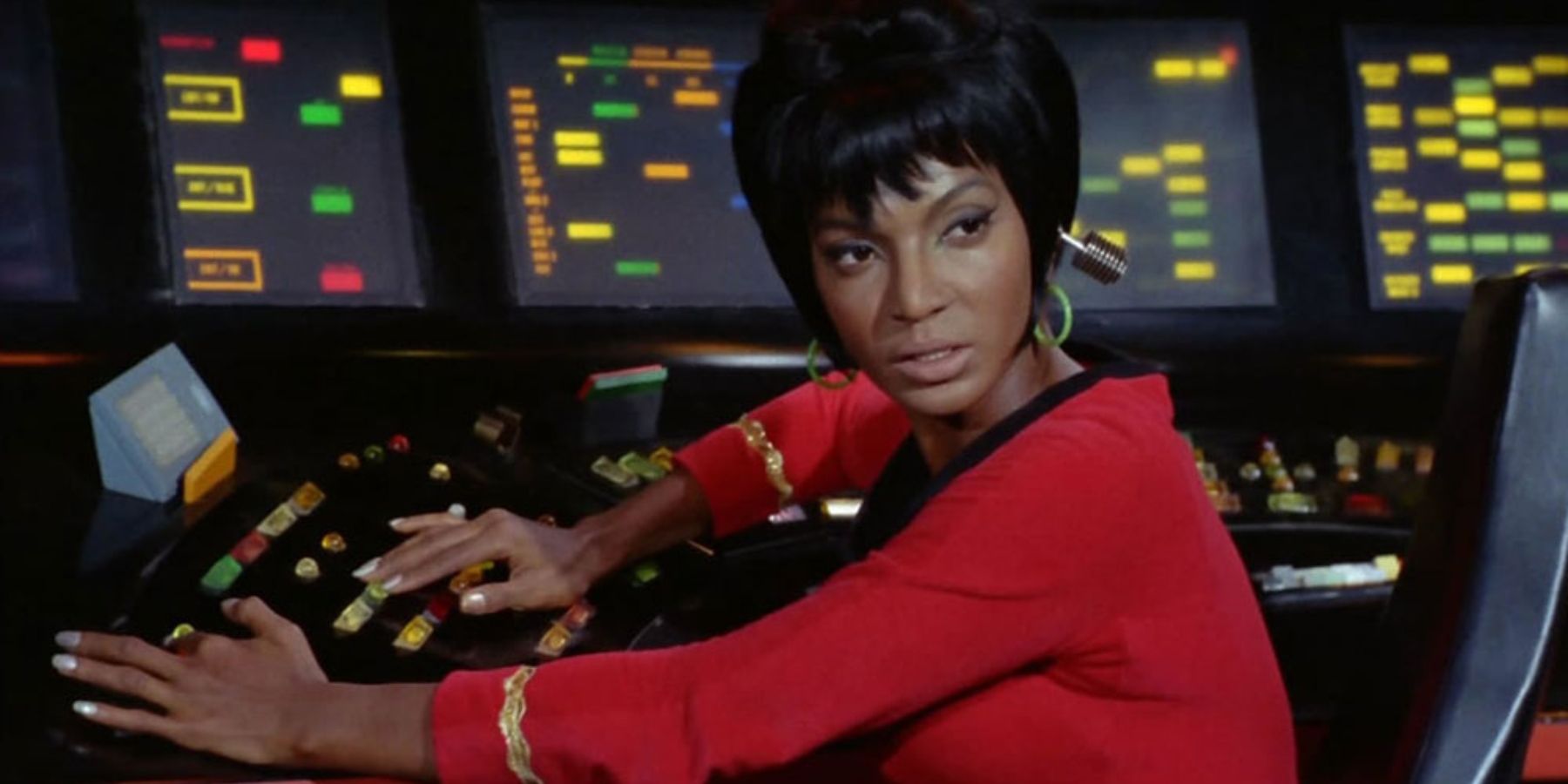Nichelle Nichols, best known for playing Lt. Uhura on Star Trek: The Original Series, has passed away at the age of 89. Her performance was absolutely groundbreaking as one of the largest, most mainstream, and un-stereotyped roles any Black performer had given on television up to that point.
The beloved actress passed away on Saturday, July 30 from natural causes, according to an Instagram post from her son Kyle Johnson. Within hours, tributes started pouring in from those who had worked with her, including George Takei, William Shatner, and Lynda Carter.
Her co-star George Takei, who played Sulu on Star Trek, described Nichols as “trailblazing” and “incomparable,” writing: “today, my heart is heavy, my eyes shining like the stars you now rest among, my dearest friend.” William Shatner, the original Captain Kirk, said that Nichols “played an admirable character that did so much for redefining social issues both here in the US and throughout the world. I will certainly miss her.” Lynda Carter, the star of the 1970s live action Wonder Woman TV series, wrote poignantly that, “Many actors become stars, but few stars can move a nation. Nichelle Nichols showed us the extraordinary power of Black women and paved the way for a better future for all women in media.”
The role of Lt. Nyota Uhura, the USS Enterprise’s communications officer, was a landmark moment in the history of U.S. media. While there had of course been major African American film stars before her—such as Hattie McDaniel, who won the Best Supporting Actress Oscar for Gone with the Wind (1940), and Dorothy Dandridge, the first African American to ever be nominated for Best Actress with her role in Carmen Jones (1954), to name only two—acting roles remained severely limited and often stereotypical. The reality on television was perhaps even worse than on film, and Nichols’ Uhura was one of the very first leading roles for a Black performer in the history of television. Her Uhura was cool, calm, and capable. She was not subservient to other characters, as Black roles so often were, but rather a highly intelligent and skilled officer of the Enterprise that was treated as an absolute equal by the rest of the crew and who often solved mysteries that even the brilliant Spock could not.
The social significance of Lt. Uhura is perhaps best illustrated by a story Nichols often told later in life, as reported by Far Out Magazine. After the first season of the show aired in 1966 and ‘67, Nichols was considering leaving the show to accept a role on Broadway. She had told showrunner Gene Roddenberry that she did not intend to return for the second season, but agreed to take the rest of the weekend to think about it before making it official. That very weekend, Nichols went to an NAACP fundraiser and was told her “greatest fan” wanted to see her. Being the generous individual she was, she agreed to personally meet the fan without having any idea who it was.
Lo and behold, she was approached by Dr. Martin Luther King, Jr., who told her how much he loved the character and her performance on the show. Nichols thanked him, but said “Dr. King, I wish I could be out there marching with you.” King immediately replied, “No, no, no. No, you don’t understand... You are marching. You are reflecting what we are fighting for.” She went on to inform King that she intended to accept a role on Broadway and leave Star Trek, but King interrupted her and said “You cannot do that. Don’t you understand what this man [Gene Roddenberry] has achieved? For the first time, we are being seen the world over as we should be seen. Do you understand that this is the only show that my wife Coretta and I will allow our little children to stay up and watch?”
After the success of Star Trek, Nichelle Nichols went on to volunteer for a special project with NASA to encourage women and people of color to join the organization. She was instrumental in recruiting the United States’ first female astronaut Dr. Sally Ride and its first African American astronaut Colonel Guion Bluford. While Nichols will be sorely missed, fans continue to express their appreciation to the actress who was so instrumental in shaping the world we live in today. Although it may be cliché, Nichelle Nichols truly went where no man or woman had gone before.
Source: Nichelle Nichols|Instagram and Far Out Magazine

